Review of The 2023 Digital Japanese Studies Symposium: Digital Humanities as New Paradigm on Japanese Studies in Indonesia

Japan studies is an interdisciplinary field of academic inquiry that focuses on studying Japan and its culture, history, society, language, and literature. It encompasses various disciplines, including anthropology, art, history, literature, linguistics, political science, international relations, economics, sociology, and cultural studies. As a field, Japanese studies has a global reach with scholars and researchers working in universities and research institutions worldwide. In addition, it is a field that continues to evolve as new research and scholarship are produced that deepen our understanding of Japan and its place in the world.
In line with the rapid development of technology, Japanese studies also started to employ the computational method in their research agenda. In 2001, a significant development in digital humanities in Japanese studies was the creation of the Japan Center for Asian Historical Records (JACAR). JACAR was established to digitize and make available the historical records of Japan’s Ministry of Foreign Affairs, including documents related to Japan’s relationships with other countries. Scholars worldwide have used JACAR’s digital archives to study Japan’s foreign policy and diplomatic history. Moreover, in 2002 a project was beginning to create -digital archives of historical documents, such as the “Edo shogunate documents” project. Since then, there has been a steady increase in digital humanities projects related to Japanese studies, including text mining and natural language processing of literary works, network analysis of social and historical relationships, and visualization of cultural phenomena.
Against this backdrop, the Faculty of Humanities BINUS University, supported by the Japan Foundation, holds “the 2023 Digital Japanese Studies Symposium: Digital Humanities as New Paradigm on Japanese Studies in Indonesia.” This symposium is part of the Indonesia-Japan Coalition on Digital Humanities, which is expected to provide a platform to enrich Japanese Studies in Indonesia with the Digital Humanities method within various disciplines in Humanities, including but not limited to linguistics, culture, and social and political science. Therefore, this event is expected to meet three objectives:
- To establish an international epistemic community platform with the Japan Digital Humanities model as its engine.
- To provide an alternative to developing the Japan Study discourse in Indonesia.
- To promote collaboration between Indonesian and Japanese scholars in various humanities disciplines, especially Japan study within the framework of society 5.0
Welcoming speech:
Takahashi Yuichi
Director General, the Japan Foundation Jakarta
Opening remarks:
Dr. Elisa Carolina Marion (Dean of Humanities, BINUS University)
Keynote Session:
Digital Humanities in Japan Studies
Prof. Kiyonori Nagasaki, Ph.D. (The International Institute for Digital Humanities)
International Seminar Session:
Digital Humanities as New Paradigm on Japanese Studies in Indonesia
- Open Research Infrastructure in Japanese Studies by Prof. Asanobu Kitamoto, Ph.D. (Japan National Institute of Informatics)
- The prospect of computational method in Japanese Studies by Prof. Dr. Tirta Nugraha Mursitama, Ph.D. (BINUS University)
Moderator: Rangga Aditya, Ph.D.
Colloquium Panel 1
Developing Digital Corpora and Lexica of Japonic Languages
- Inu Isnaeni Sidiq, Ph.D (University of Padjajadran)
- So Miyagawa, Ph.D. (National Institute for Japanese Language and Linguistics)
Moderator: Momoko Takai, B.Ec., M.Ed
Colloquium Panel 2
Utilizing Data Science & Visualization in Japanese Studies
- Fadjar Ibnu Thufail, Ph.D. (Indonesian National Research and Innovation Agency)
- Emily Ohman, Ph.D. (Waseda University)
Moderator: Moch. Faisal Karim, Ph.D.
The symposium was conducted in two main sessions. The first is the keynote session and the colloquium session in the afternoon. The colloquium panel 3 is discussing concerning Digital Teaching and Learning in Japanese Studies with the two speakers in Colloquium Panel 3:
- Dr. Putri Andam Dewi (BINUS University)
- Dr. Lea Santiar, M.Ed. (Universitas Indonesia)
Moderator: Roberto Masami Prabowo, S.S., M.Si.
This Panel focuses on how the interconnection between digital transformation, the Covid-19 pandemic affected teaching and learning in Japanese Studies.
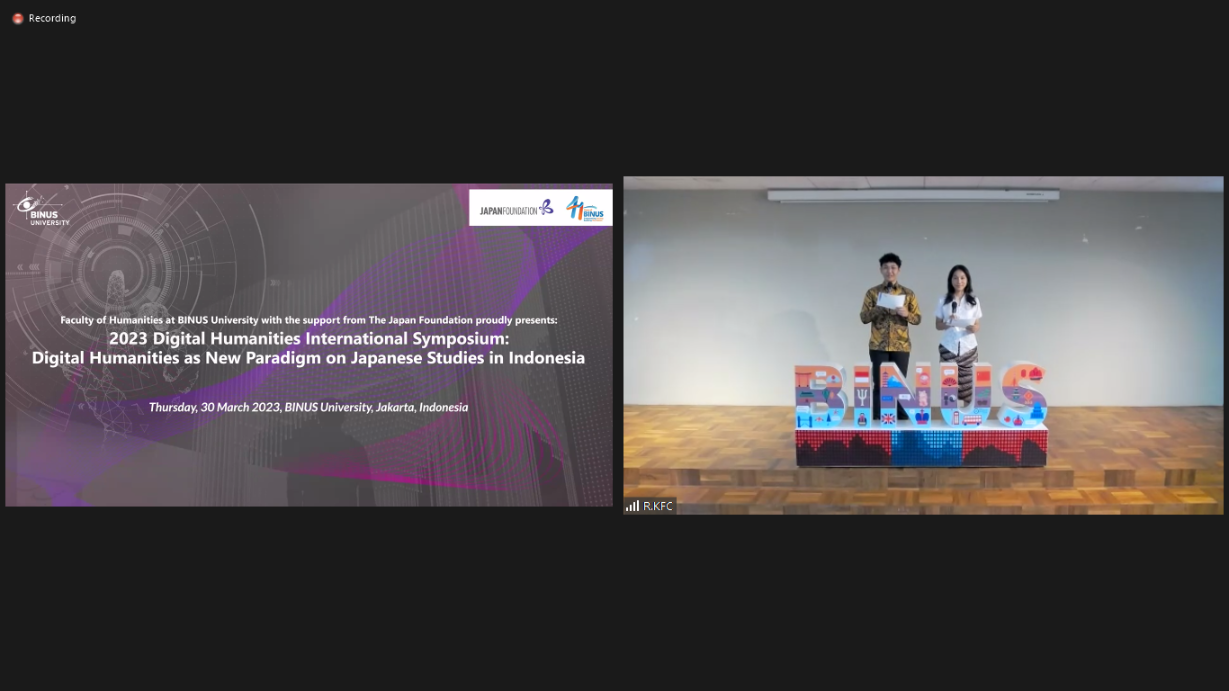
Picture 1: Opening & Greeting session
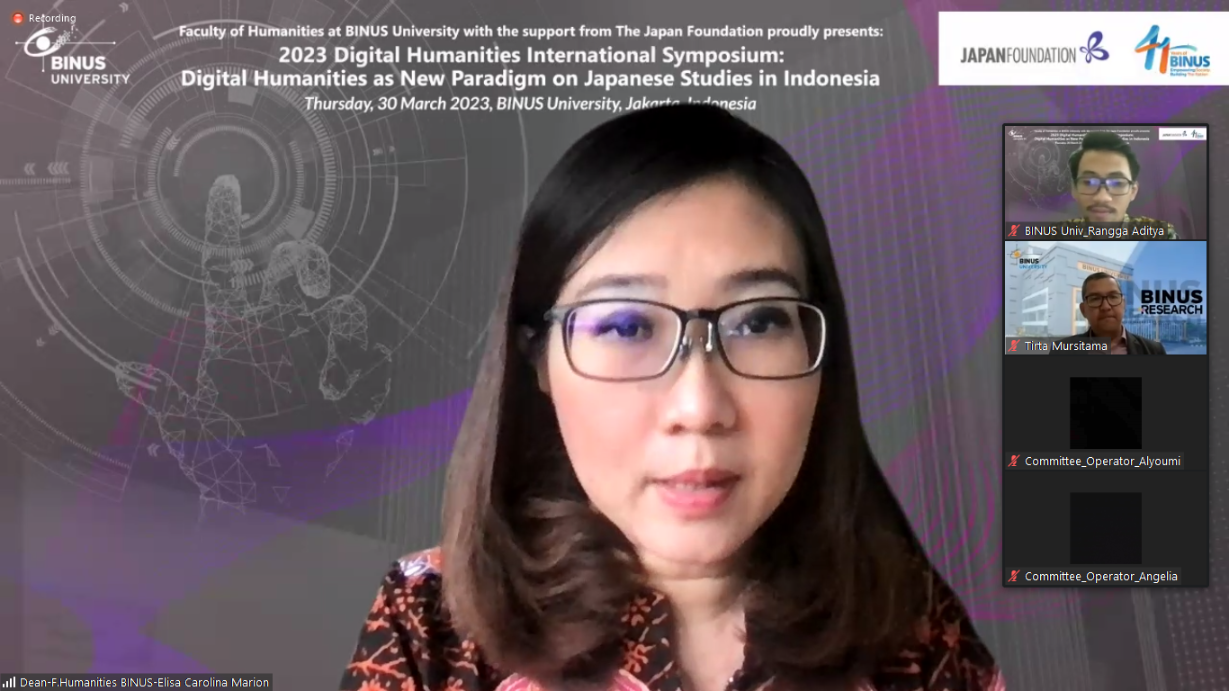
Picture 2: Opening remarks by Dr. Elisa Carolina Marion (Dean of Humanities, BINUS University)
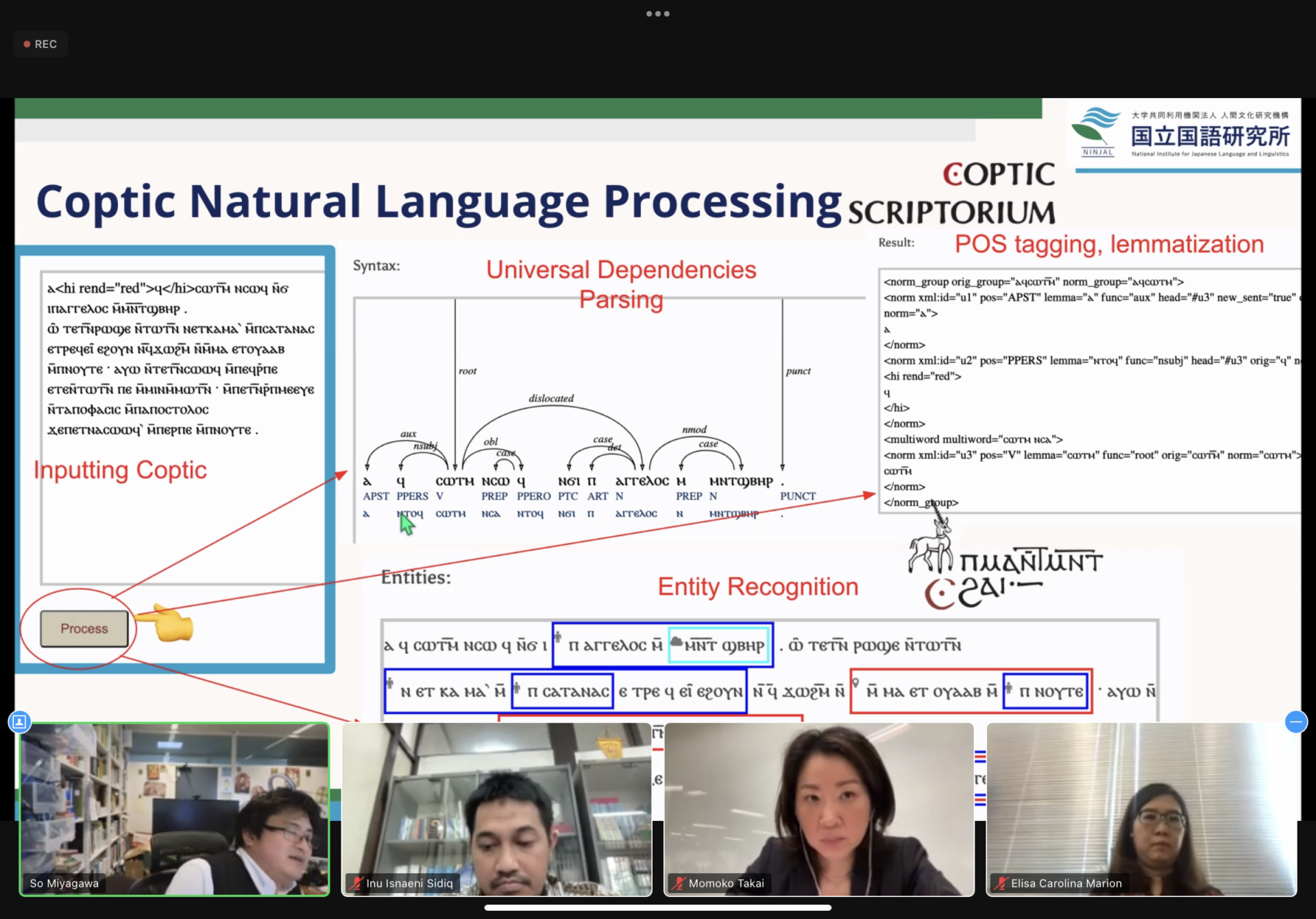
Picture 3: Colloquium Panel 1 – Developing Digital Corpora and Lexica of Japonic Languages.
Right to left: So Miyagawa, Ph.D. (National Institute for Japanese Language and Linguistics), Inu Isnaeni Sidiq, Ph.D (University of Padjajadran), Moderator – Momoko Takai, B.Ec., M.Ed, Dr. Elisa Carolina Marion (Dean of Humanities, BINUS University)
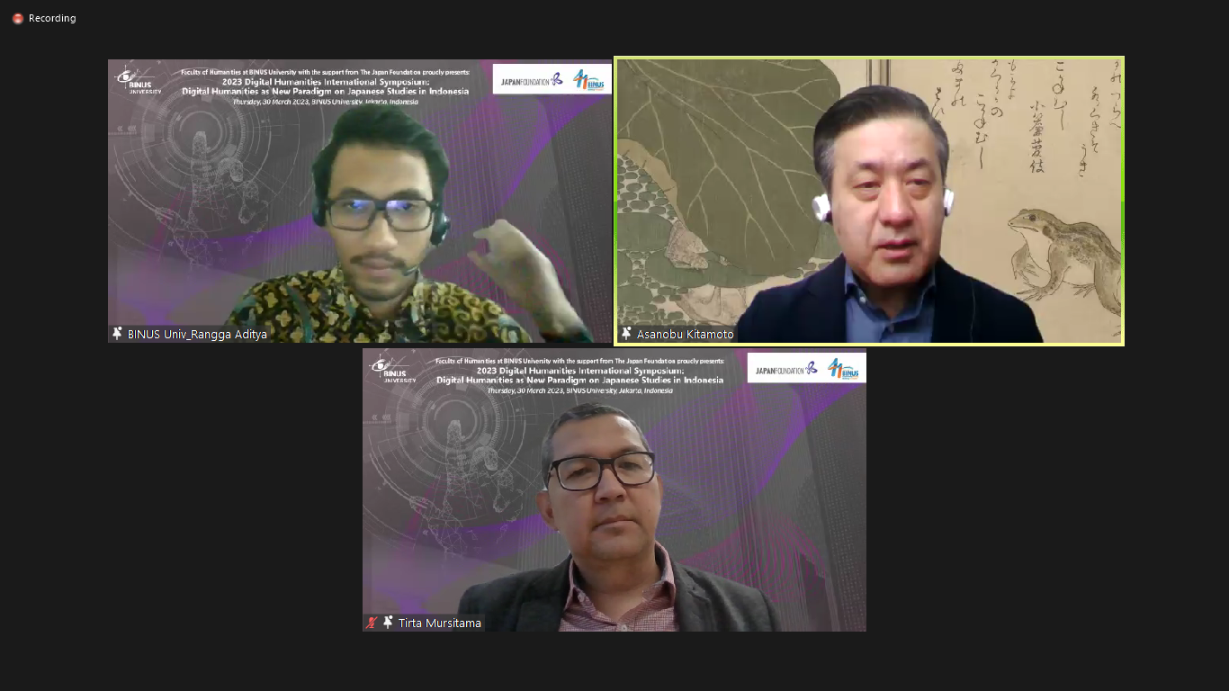
Picture 4: International Seminar Session – Digital Humanities as New Paradigm on Japanese Studies in Indonesia
- Open Research Infrastructure in Japanese Studies by
- The prospect of computational method in Japanese Studies by
Up – left to right: moderator – Rangga Aditya, Ph.D., Prof. Asanobu Kitamoto, Ph.D. (Japan National Institute of Informatics)
Bottom: Prof. Dr. Tirta Nugraha Mursitama, Ph.D. (BINUS University)
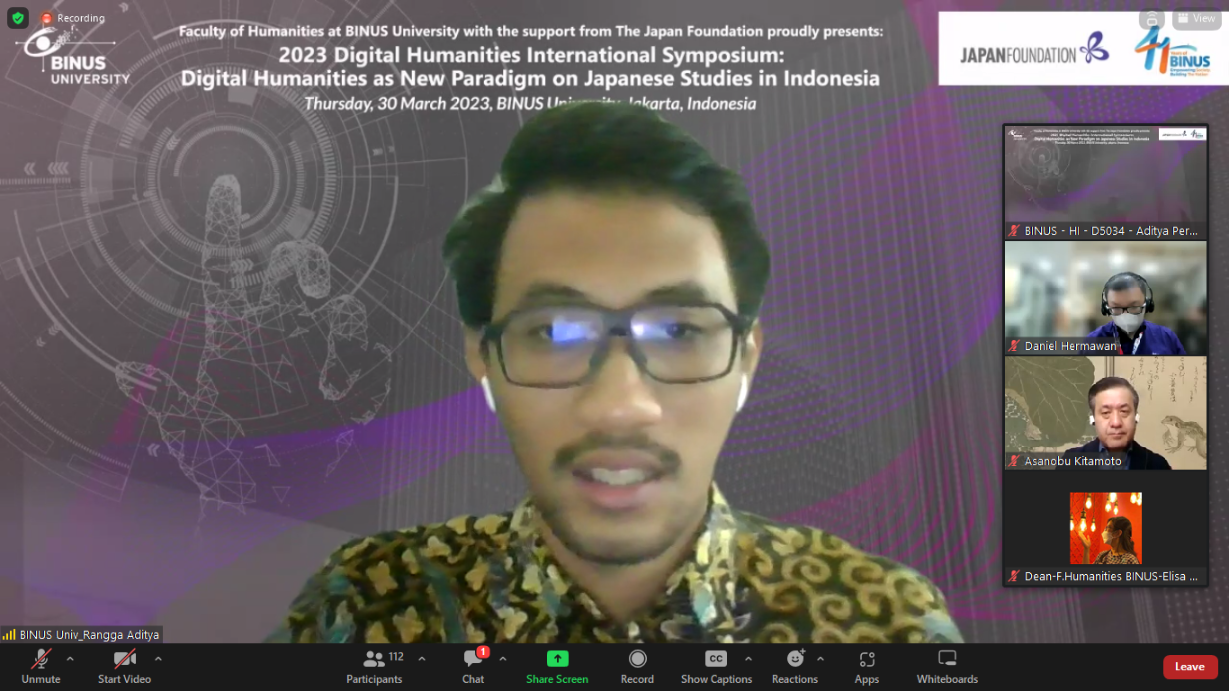
Picture 5: Wrap-up and closing by Rangga Aditya, Ph.D. (Director of Indonesian Digital Humanities Project)
